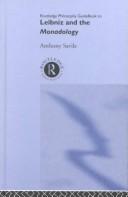| Listing 1 - 10 of 15 | << page >> |
Sort by
|
Book
ISBN: 386573605X 9783865736055 Year: 2011 Publisher: Berlin : WVB,
Abstract | Keywords | Export | Availability | Bookmark
 Loading...
Loading...Choose an application
- Reference Manager
- EndNote
- RefWorks (Direct export to RefWorks)
Book
ISBN: 9783825235925 3825235920 Year: 2011 Publisher: München Fink
Abstract | Keywords | Export | Availability | Bookmark
 Loading...
Loading...Choose an application
- Reference Manager
- EndNote
- RefWorks (Direct export to RefWorks)
Philosophical anthropology --- Leib-Seele-Problem --- Online-Publikation --- Leib-Seele-Problem.
Book
ISBN: 3897859742 Year: 2013 Publisher: Paderborn : mentis,
Abstract | Keywords | Export | Availability | Bookmark
 Loading...
Loading...Choose an application
- Reference Manager
- EndNote
- RefWorks (Direct export to RefWorks)
Die Annahme, dass mentale Zustände wie Überzeugungen, Wünsche und Gefühle physische Ereignisse bewirken (wie körperliches Verhalten und willentliche Handlungen), ist ebenso verbreitet wie problematisch, weil sie im Widerspruch zu der Überzeugung steht, dass mentale Zustände Phänomene nichtphysischer Natur sind und physische Phänomene ausschließlich physische Ursachen haben. Der Epiphänomenalismus, der diesen als Leib-Seele-Problem bekannten Widerspruch auflöst, indem er die kausale Wirksamkeit des Mentalen bestreitet, stößt unter Laien und Philosophen jedoch auf erheblichen Widerstand. Die vorliegende Studie wendet sich den Intuitionen zu, die sich einer epiphänomenalistischen Auflösung des Leib-Seele-Problems in den Weg stellen: einerseits die innere Erfahrung unserer Urheberschaft, andererseits unser Selbstverständnis als handelnde Personen. Es wird argumentiert, dass die durch die Berufung auf diese Intuitionen zum Ausdruck gebrachten, selten jedoch ausdrücklich vorgebrachten Argumente für die These der mentalen Kausalität allesamt nicht überzeugen können. Vielmehr ist der Epiphänomenalismus sowohl mit unserer inneren als auch unserer äußeren Lebenswirklichkeit vereinbar.
Mentale Verursachung. --- Leib-Seele-Problem. --- Handlung. --- Epiphänomenalismus.
Book
ISBN: 3957438322 3957431069 Year: 2018 Publisher: Paderborn Brill | mentis
Abstract | Keywords | Export | Availability | Bookmark
 Loading...
Loading...Choose an application
- Reference Manager
- EndNote
- RefWorks (Direct export to RefWorks)
Can a person be morally beautiful? Can a character trait, such as honesty, be beautiful and sneakiness ugly or disgusting? Or are such expressions merely metaphorical? Talk of moral beauty has been commonplace since antiquity; and especially 18th-century philosophers used the notion. Yet, a literal meaning quickly leads to Moral judgements based on mere physical appearance, as physiognomists such as Lavater have endorsed. This book assesses influential 18th-century theories of moral beauty and proposes two conditions for a safe literal conception of moral beauty that not only helps justify many moral judgements based on aesthetic Quality but also shows how beauty and moral virtue can be based on the same principles. First, we need an account of why moral beauty and non-moral physical beauty are distinct kinds of beauty; and second, we need an account of how moral beauty can be expressive of moral virtue without identifying the one with the other. The reasons why Shaftesbury, Hutcheson, Hume, and Reid only meet the first condition and why Kant and Schiller meet both conditions are extremely illuminating for current debates on the interactions between aesthetics and moral theory.
Epiphänomenalismus --- Philosophie des Geistes --- Leib-Seele-Problem
Book
ISBN: 9783402103500 3402103508 9783402103517 Year: 2022 Publisher: Münster Aschendorff Verlag
Abstract | Keywords | Export | Availability | Bookmark
 Loading...
Loading...Choose an application
- Reference Manager
- EndNote
- RefWorks (Direct export to RefWorks)
Mystik --- Leib-Seele-Problem --- Mystische Theologie --- Theologische Erkenntnistheorie
Book
ISBN: 9780525564775 1524747971 0525564772 Year: 2020 Publisher: New-York : Vintage Books,
Abstract | Keywords | Export | Availability | Bookmark
 Loading...
Loading...Choose an application
- Reference Manager
- EndNote
- RefWorks (Direct export to RefWorks)
Consciousness. --- Leib-Seele-Problem. --- PHILOSOPHY --- Panpsychism. --- Panpsychismus. --- Philosophy of Mind. --- Mind & Body. --- Galilei, Galileo, --- Bewusstsein. --- Philosophy

ISBN: 382601121X 9783826011214 Year: 1996 Publisher: Würzburg : Königshausen & Neumann,
Abstract | Keywords | Export | Availability | Bookmark
 Loading...
Loading...Choose an application
- Reference Manager
- EndNote
- RefWorks (Direct export to RefWorks)
Body language in literature. --- Körpersprache. --- Leib-Seele-Problem. --- Leiblichkeit. --- Sinnlichkeit. --- Sprache. --- Jean Paul, --- Paul --- Paul, Jean. --- Unsichtbare Loge.

ISBN: 041516575X 9780415165754 0415171148 9780415171144 0415165768 9780415165761 041517113X 9780415171137 9780203879979 9781134707836 9781134707874 9781134707881 Year: 2000 Publisher: London Routledge
Abstract | Keywords | Export | Availability | Bookmark
 Loading...
Loading...Choose an application
- Reference Manager
- EndNote
- RefWorks (Direct export to RefWorks)
"Leibniz is a major figure in western philosophy and, with Descartes and Spinoza, one of the most influential philosophers of the Rationalist School. This Routledge Philosophy GuideBook guides the reader through the complexities of Leibniz's most famous work and the fullest statement of his mature philosophical thought, the Monadology. Anthony Savile clearly identifies the intellectual assumptions that underlie Leibniz's thought and locates the text within Leibniz's larger philosophical project." "Leibniz and the Monadology is a clear and engaging introduction to one of the finest systematic thinkers of the modern era. It is essential reading for all students coming to Leibniz for the first time."--Jacket.
History of philosophy --- Leibniz, von, Gottfried W. --- Monadology. --- Monadologie. --- Monadenleer. --- Wissenschaftsphilosophie. --- Leib-Seele-Problem. --- Leibniz, Gottfried Wilhelm, --- Leibniz, Gottfried Wilhelm. --- La monadologie. --- Aristotle --- Political science. --- Aristotle. --- Political science --- Administration --- Civil government --- Commonwealth, The --- Government --- Political theory --- Political thought --- Politics --- Science, Political --- Social sciences --- State, The
Book
ISSN: 12487279 ISBN: 9782711626984 2711626989 Year: 2016 Publisher: Paris : Libraire philosophique J. Vrin,
Abstract | Keywords | Export | Availability | Bookmark
 Loading...
Loading...Choose an application
- Reference Manager
- EndNote
- RefWorks (Direct export to RefWorks)
"Comment justifier l'union entre un intellect entièrement immatériel et une âme forme substantielle de la matière? Tel est le problème "noétique" que pose le traité De l'âme d'Aristote: si l'âme est unie au corps, l'intellect en est "séparé"; si le composé de l'âme et du corps est engendré et se corrompt, l'intellect, lui, "vient du dehors" et est "incorruptible". Mais le problème ne fut pas tranché par Aristote. Le caractère aporématique du traité explique la diversité des interprétations qu'en ont donnée des commentateurs comme Théophraste, Alexandre d'Aphrodise, Thémistius, Avicenne et Averroès. C'est dans le cadre de cette tradition que les penseurs médiévaux ont examiné la nature de l'âme et de l'intellect. Leurs discussions prennent un tour dramatique lorsque Siger de Brabant, vers 1265, fait sienne l'interprétation radicale du traité De l'âme proposée par Averroès selon laquelle l'intellect est une substance séparée, unique pour tous les êtres humains et éternelle. Siger inaugure ainsi "l'averroïsme latin", un courant à plusieurs nuances qui se poursuivra jusqu'à la Renaissance ; il contraint Thomas d'Aquin à raffiner sa critique philosophique de la noétique averroïste et provoque en partie l'intervention des autorités ecclésiastiques, dont les condamnations successives ont conditionné l'exercice de la philosophie en Occident."--Page 4 of cover.
Soul --- Intellect --- Ame --- Intelligence --- Early works to 1800. --- Ouvrages avant 1800 --- Siger, --- Aristotle. --- Intellect (philosophie) --- Siger de Brabant --- Critique et interprétation --- Philosophical anthropology --- Philosophy --- History --- Siger --- Intellect - Philosophy --- Philosophical anthropology - History --- Siger - of Brabant --- Form. --- Intellect (philosophie). --- Intellect. --- Intelligence. --- Leib-Seele-Problem. --- Noetik. --- Soul. --- Substanz. --- Âme. --- Aristote - commentaire. --- Aristote. --- Siger de Brabant, --- Critique et interprétation. --- Et l'intelligence. --- Et l'âme.
Book
ISBN: 9780472112029 Year: 2002 Publisher: Ann Arbor (Mich.) : University of Michigan press,
Abstract | Keywords | Export | Availability | Bookmark
 Loading...
Loading...Choose an application
- Reference Manager
- EndNote
- RefWorks (Direct export to RefWorks)
"Staging Consciousness argues that theater is a living invalidation of the Western dualism of mind and body, activating human consciousness through its embodiment of thought in performance. While consciousness theory has begun to find ways to bridge dualist gaps, Staging Consciousness suggests that theater has anticipated these advances, given the ways in which the physical theater promotes nonphysical thought, connecting the two realms in unique and ingenious ways." "This book offers a new way for theater practitioners to look at the unique value of the theater and an invitation for philosophers and scientists to search for new paradigms in theater, the oldest of art forms."--Jacket. "William W. Demastes makes use of the writings of such varied theater practitioners as Artaud, Grotowski, Beckett, Kushner, Shepard, Spalding Gray, Peter Shaffer, and others, illuminating theater as proof that mind is an extension of body. The living stage incubates and materializes thought in a way that highlights the processes of daily existence outside the theater. Theater, then, has an ally in the new sciences, resulting in a clearer vision of how theater works as well as how theater can contribute to the understanding of reality's material essence."
American drama --- Conscience dans la littérature. --- Consciousness in literature. --- Criticism --- Drama --- English drama --- Esprit et corps dans la littérature. --- Leib-Seele-Problem. --- Mind and body in literature. --- Theater --- Theater. --- Théâtre américain --- Théâtre anglais --- Théâtre --- History and criticism --- Theory, etc. --- Psychological aspects. --- Production and direction. --- Histoire et critique --- Théorie, etc. --- Aspect psychologique. --- Production et mise en scène.
| Listing 1 - 10 of 15 | << page >> |
Sort by
|

 Search
Search Feedback
Feedback About UniCat
About UniCat  Help
Help News
News